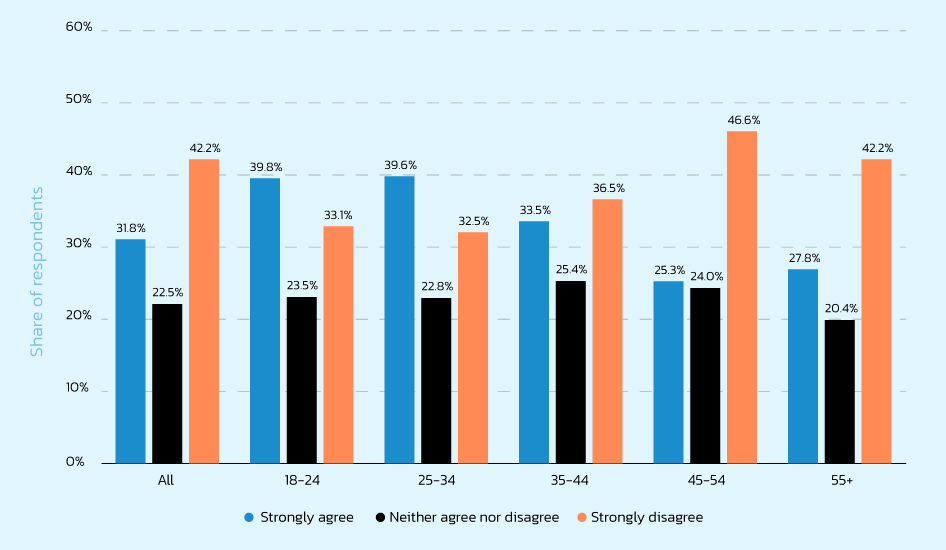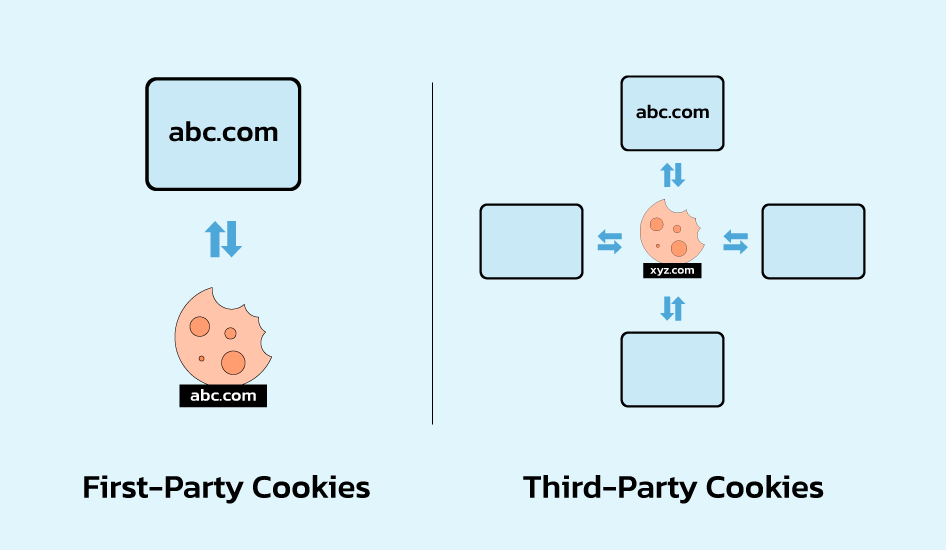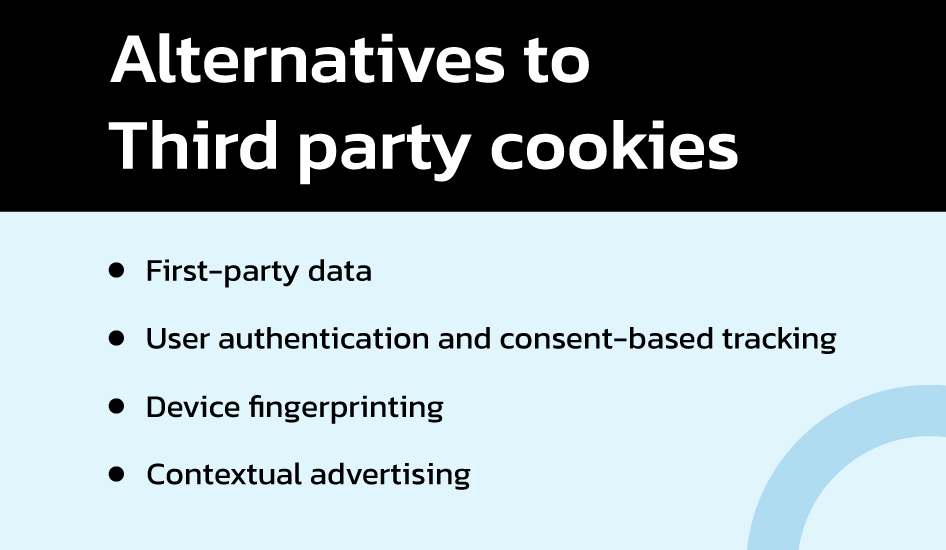
Do you know what Google announced back in January 2020? Google announced that the Chrome web browser would begin blocking third-party advertising cookies in 2022. Users’ ages, genders, product preferences, and search histories are just some of the demographic details that may be gleaned from these cookies.
This information is then utilised to provide advertising to users based on their unique cookie identifiers. However, Chrome is not the first browser to oppose such cookies.
In 2013, Mozilla’s Firefox began working to reduce the effectiveness of cookies. In 2017 Apple’s Safari began restricting cookie usage to avoid user tracking. Due to Chrome’s dominance in the browser industry, its decision will have the most far-reaching effects.
In June 2021, Google declared its plans to eliminate third-party cookies by the end of 2023 (which was later extended to 2024) and introduce novel tracking technologies in their place. This announcement sparked concerns among advertisers relying on cookies to deliver personalised ads and reach customers.
Although alternative digital advertising methods are available, marketers might have to adapt to new technologies to continue effectively engaging with their audiences.
According to Google’s vision, consumers will be the primary beneficiaries of the change since their data will no longer be gathered, processed, exploited, and maybe even traded by many corporations located worldwide.
Nearly 32% of American respondents to a June 2021 study said they always allowed all cookies when a website prompted them to do so. Those between 25 and 34 had the most effective rate, while those between 45 and 54 had the lowest.

Who Is Going to Suffer the Consequences?
The first and most apparent losers will be businesses and digital marketing agencies relying heavily on cookies. Without monitoring, digital marketing could not reach its target audience as effectively as in the past, resulting in a decline in sales revenues across all industries, particularly in the e-commerce industry. This new situation will almost certainly reduce the money spent on digital advertising.
This is not just because falling revenues often result in decreased expenditure in general but also because advertisers may choose to limit their spending on digital advertising in favour of media forms that are more effective. A decrease in advertising expenditure may also severely impact online publications, the survival of which is dependent on advertising income.
Because third-party cookies are the foundation of programmatic advertising, which is the foundation upon which an entire subsector of the advertising technology industry was developed, suppliers of supply-side and demand-side platforms, ad exchanges, and data management platforms will also face a loss in profits.
Last but not least, consumers can also be deemed losers since the experience of surfing the internet without tailored advertisements would be less personalised and, as a result, less relevant.
Because of this, the end of cookies will probably impact how digital marketing works. Marketers could not track their viewers’ demographics or online behaviour without these third-party cookies. Those not ready stand to lose a lot of money in sales.
So how can businesses in marketing make it through a cookie-less future? Perhaps the most fruitful course of action would be to fund the creation of new forms of technology and advertising.
What Are Cookies?
The following section will provide an in-depth analysis of how cookies function, the reasons why they are significant, and the steps that marketers should take to be ready for a future without cookie monitoring or with severely restricted access to them.
Cookies are small text files stored in the browser and are unique to a device (sometimes called the user). Websites may put information into these files. Cookies have been around since 1994, and their primary function has always been to make the user’s online shopping experience more convenient.
Today’s usage of HTTP cookies can be categorised into two distinct types: Session Cookies and Persistent Cookies.
Session Cookies are temporary files that reside in your computer or mobile device’s Random Access Memory (RAM) while you browse a particular website. When you close the browser or exit the site, these cookies get erased from your RAM.
On the other hand, Persistent Cookies store information on your hard disk or solid-state storage and stay there even after you leave the website. Some of them may have an expiration date; once it passes, the cookie will self-delete.

What Are First-Party Cookies?
A first-party cookie is a type of cookie set by a website. It contains information related to the activity done by a user on that specific website.
The purpose of using first-party cookies is usually to enhance the user experience. For instance, many websites utilise persistent first-party cookies to save user login details and configure personalised pages.
By doing so, publishers can offer users a seamless browsing experience while monitoring essential metrics such as session duration, bounce rates, and time spent on each webpage.
What Are Third-Party Cookies?
In contrast, third-party cookies are created by entities different from the owner of the website being visited. These cookies track a person’s online activities across multiple websites. They function by planting a permanent file on a user’s computer or device, which gathers data as the individual navigates the web.
A Digital marketing company often generates third-party cookies to build detailed audience profiles. The collected data includes the number of visits, time spent on specific web pages, and the URLs of the sites visited. This information helps businesses create tailored advertisements and deliver them to the appropriate demographics.
Both cookies play significant roles in helping digital marketers monitor user behaviour and better comprehend their target audience. It is essential to note that there’s also a distinction between First-Party and Third-Party Cookies based on who owns them.
What Advantages Does It Now Provide for Companies to Use Cookies from Third-Party Websites?
The business model for internet advertising is pushed forward by using cookies from third-party websites. It is possible to follow a person throughout the internet when they visit a website and provide their agreement to the usage of cookies.
To put it another way, companies use a customer’s past actions on their website to persuade them to purchase.
Cookies are used to keep track of consumers so that brands may retarget them with advertisements for products or web pages that they have previously browsed.
Cross-site tracking occurs when a user leaves a website, and cookies are placed by a third party; continue to monitor the user’s movements.
Cookies set by third parties contribute in several ways to the marketing activities of a business, including the following:
Using the information acquired by cookies, businesses can give consumers targeted advertisements based on their profile and browsing history.
Publishers and retail websites use the login buttons for social media as identifiers to further monitor the demographics and interests of their users.
A significant portion of the marketing expenditures of many different businesses is allotted to these techniques. The information that advertisers presently depend on will be lost when third-party cookies are no longer available.
Here are 5 Facts You Should Know About Google’s Recent Privacy Changes and Cookie Phase-Out
Many marketers were concerned that they wouldn’t be able to monitor the correct data after Google’s announcement that it would no longer allow third-party cookies. Marketers still have choices despite the demise of Google’s third-party cookies; they need to shift their focus to relying on information their customers voluntarily submit.
1. Google won’t be prohibiting all types of cookies.
Take a deep breath and calm down if you’re worried that your marketing methods relying on cookies may soon become irrelevant.
Currently, Google has said its sole intention is to eventually remove the third-party cookie from its browsers. On the other hand, first-party cookies monitor fundamental data about the people who visit your website is entirely secure.
According to a statement made by Google in 2021, the tech giant described first-party partnerships as “vital.” Therefore, in the end, any first-party data you get from the visitors to your website using any browser will still be there in its original form.
2. Google will not wholly opt out of user tracking.
However, the company will continue to put money into alternatives to technology that can follow individuals personally. FloC, a tool that follows groups rather than individuals, has helped Google’s advertising efforts along with the creation of its Privacy Sandbox.
Google also posted, “We anticipate testing FLoC-based cohorts with advertisers in Google Ads in Q2, and Chrome plans to make them accessible for public testing via origin trials with the next release this month.”
Additionally, the report said that “Chrome will also offer the first iteration of new user controls in April and will expand these controls in future releases as more proposals reach the origin trial stage and as they receive more feedback from end users and the industry.”
3. This Change Still Allows for Novel Approaches to Marketing.
While this may spell doom for one kind of cookie, it may be a blessing in disguise for more agile and malleable businesses.
While this change raises some red flags, Google and other browsers still advocate for user privacy. Since privacy rules are expected to continue increasing, now might be a good time to consider less risky advertising options if future regulation deems one of your current strategies outdated.
Why? Asking yourself, “Are we too reliant on this technology?” is a vital habit for any forward-thinking marketer to develop. Or “What will happen if our strategy is eventually regulated?”
Instead of relying only on hyper-targeted content or obnoxious pop-ups, creative marketers can create more nuanced alternatives and commercials that resonate with the people.
The way we extract value from data is another area ripe for reinvention.
4. Marketers Are Concerned with More Than Just Data.
If you don’t want Google Ads to collect data from third-party cookies in Chrome, you may still use the service thanks to first-party cookies and the Privacy Sandbox. Without support from Chrome, however, some advertising tools and systems that rely on data from third parties may suffer a significant blow.
Marketers are worried about the rationale that Google provided for the phase-out of third-party cookies on Chrome, even though the eradication of these cookies would cause inconvenience for specific users.
5. Many Business-people in The Marketing Industry Anticipated the Decline of Cookies Coming.
Recently, governments all around the globe have begun looking into and taking stricter action over concerns about data privacy. For instance, in a decision expected to cause a stir in October 2019, the highest court in Europe declared that users in the European Union (EU) must actively agree to the usage of all analytics cookies when they log on to a website. If not, the website cannot place tracking or analytics cookies on the user’s browser.
The so-called “death of the third-party cookie” may startle some people, but it wasn’t a big surprise.
The decision made by the GDPR implies that websites may no longer depend on “implicit opt-in,” which occurs when a website shows a cookie banner. Still, the user continues to visit the page nevertheless. Websites cannot record users’ opt-in permission before installing analytics or web tracking cookies on a user’s browser.
A banner appears before the user inquires about their consent to utilise cookies.
The cyberattack may not have touched you if your website catered only to local users or domestic users who were located outside of the countries that were targeted.
On the other hand, foreign websites received a huge blow when reporting because data from Google Analytics, dependent on cookies, began to seem unrealistically low.
This bizarre incident served as a sobering reminder for data-driven organisations dependent on Google Analytics that these companies are susceptible to problems caused by software.
Additionally, it illuminated how governance and privacy legislation have the potential to influence our strategy significantly.
What Can Advertisers and Publishers Do Now?

In light of the upcoming cookie-less future, progressive publishing companies and marketers are expected to adapt their advertising techniques. This means moving away from traditional methods that rely heavily on tracking cookies and embracing new approaches, such as utilising first-party data.
To successfully implement this change, being transparent about collecting personal information with your audience is essential. Communicate how their data will be used, ensuring it will be kept confidential. By doing so, individuals will feel more comfortable sharing their details.
Besides this, brands can explore contextual advertising as an additional or standalone method when conventional third-party ad strategies become obsolete. Contextual marketing focuses on displaying promotions that align with users’ interests, which increases engagement rates and boosts brand reputation.
With the elimination of tracking cookies, publishers can also participate in contextual advertising by categorising their articles into relevant categories such as travel or sport. These segments may then be presented to suitable brands for retargeting purposes, offering greater exposure without relying on cookies.
Adopting these measures will help businesses stay competitive despite the changing digital marketing landscape.
Furthermore, another approach worth considering is revisiting established practices, like contextual advertising. Unlike third-party data usage, where you place ads directly in front of specific user types, contextual advertising involves positioning pay-per-click (PPC) ads on sites related to your niche through keyword matching. For instance, your ad would appear on sports-focused web pages if you sell athletic clothing.
In conclusion, to safeguard your brand against potential regulatory changes or industry dominance, think critically about fundamental strategies that can still connect you with your audiences sans cookies, highly-targeted advertisements, or extensive data collection. Doing so will render your organisation less susceptible to technological shifts and enable you to leverage cutting-edge tools while minimising associated risks.
How can NFlowTech help?
The impending disappearance of cookies will significantly impact digital marketing as we know it. To address this, we have a consumer-centric advertising solution to help you effectively reach your target audience without depending on identifiers.
Our services include various audience targeting options ensuring seamless advertising across devices and channels. If you want to learn more about how we can secure your targeting endeavours for the future, please don’t hesitate to contact us for further information. We’ll be happy to assist you in exploring our innovative solutions.

Nevil Bhatt
Nevil is the owner of one of the fastest-growing digital marketing agency in India. Having a great knowledge of the IT field and business management, he decided to bring a revolution in the digital world by providing valuable and customised solutions across the globe. Whether it's real or digital, he knows how to handle sustainable relationships and meaningful interactions.




